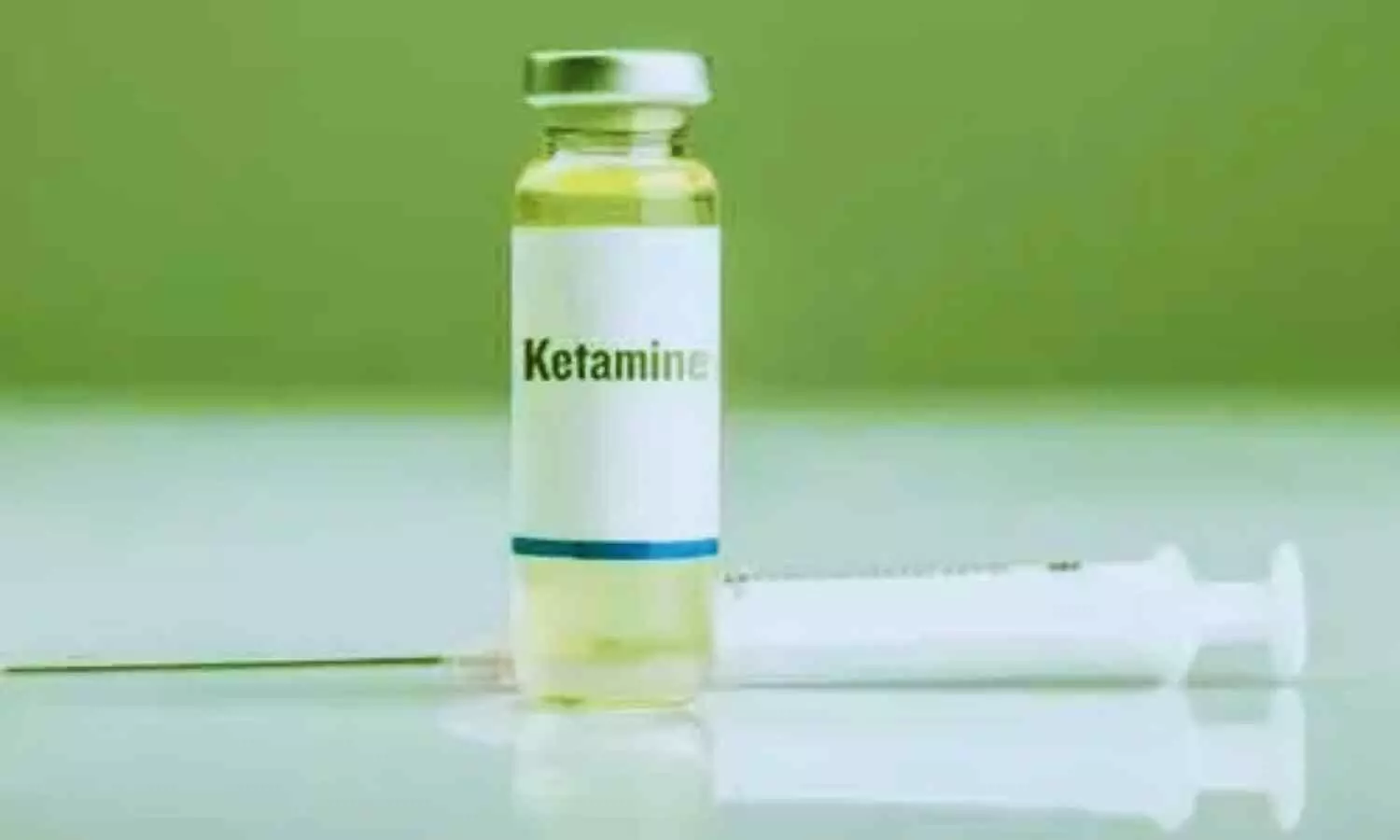No benefit of ketamine for patients hospitalised with depression, clinical trial reports
- byDoctor News Daily Team
- 23 October, 2025
- 0 Comments
- 0 Mins

Findings from a randomised and blinded clinical trial investigating repeatedketamineinfusions for treatingdepressionhave revealed no extra benefit for ketamine when added onto standard care for people admitted to hospital for depression. The paper is published in the journalJAMA Psychiatry. The KARMA-Dep (2) Trial involved researchers from St Patrick’s Mental Health Services, Trinity College Dublin, and Queens University Belfast, Ireland. It was led by Declan McLoughlin, Research Professor of Psychiatry at Trinity College Dublin and Consultant Psychiatrist at St Patrick’s Mental Health Services. Depression has been recognised by the World Health Organization as a leading cause of disability globally. According to the Health Research Board’s most recent report, there were 15,631 adult admissions to psychiatric services in Ireland in 2023. Similar to previous years, depressive disorders accounted for the highest proportion (about 24%) of all admissions. Studies show that about 30% of people with depression do not respond sufficiently well to conventional antidepressants, which mostly target monoamine neurotransmitters, for example serotonin, dopamine and noradrenaline. There is thus a need for new treatments. One such novel treatment is the dissociative anaesthetic ketamine when given intravenously in low sub-anaesthetic doses. Ketamine works differently to other antidepressants and is believed to mediate its effects in the brain through the chemical messenger glutamate. Single infusions of ketamine have been reported to produce rapid antidepressant effects, but these disappear within days. Nonetheless, ketamine is increasingly being adopted as an off-label treatment for depression even though the evidence to support this practice is limited. One possibility is that repeated ketamine infusions may have more sustained benefit. However, this has so far been evaluated in only a small number of trials that have used an adequate control condition to mask the obvious dissociative effects of ketamine, e.g. altered consciousness and perceptions of oneself and one’s environment. KARMA-Dep 2 is an investigator-led trial and was funded by the Health Research Board. The randomised trial was developed to assess antidepressant efficacy, safety, cost-effectiveness, and quality of life during and after serial ketamine infusions when compared to a psychoactive comparison drug midazolam. Trial participants were randomised to receive up to eight infusions of either ketamine or midazolam, given over four weeks, in addition to all other aspects of usual inpatient care. The trial findings revealed that: Speaking about the impact of the findings, Declan McLoughlin, Research Professor of Psychiatry at Trinity College Dublin and Consultant Psychiatrist at St Patrick’s Mental Health Services, said: “Our initial hypothesis was that repeated ketamine infusions for people hospitalised with depression would improve mood outcomes. However, we found this not to be the case. Under rigorous clinical trial conditions, adjunctive ketamine provided no additional benefit to routine inpatient care during the initial treatment phase or the six-month follow-up period. Previous estimates of ketamine’s antidepressant efficacy may have been overstated, highlighting the need for recalibrated expectations in clinical practice.” Lead author of the study, Dr Ana Jelovac, Trinity College Dublin, said: “Our trial highlights the importance of reporting the success, or lack thereof, of blinding in clinical trials. Especially in clinical trials of therapies where maintaining the blind is difficult, e.g. ketamine, psychedelics, brain stimulation therapies. Such problems can lead to enhanced placebo effects and skewed trial results that can over-inflate real treatment effects.”. Jelovac A, McCaffrey C, Terao M, et al. Serial Ketamine Infusions as Adjunctive Therapy to Inpatient Care for Depression: The KARMA-Dep 2 Randomized Clinical Trial. JAMA Psychiatry. Published online October 22, 2025. doi:10.1001/jamapsychiatry.2025.3019
Disclaimer: This website is designed for healthcare professionals and serves solely for informational purposes.
The content provided should not be interpreted as medical advice, diagnosis, treatment recommendations, prescriptions, or endorsements of specific medical practices. It is not a replacement for professional medical consultation or the expertise of a licensed healthcare provider.
Given the ever-evolving nature of medical science, we strive to keep our information accurate and up to date. However, we do not guarantee the completeness or accuracy of the content.
If you come across any inconsistencies, please reach out to us at
admin@doctornewsdaily.com.
We do not support or endorse medical opinions, treatments, or recommendations that contradict the advice of qualified healthcare professionals.
By using this website, you agree to our
Terms of Use,
Privacy Policy, and
Advertisement Policy.
For further details, please review our
Full Disclaimer.
Recent News
Weight-loss drugs like Ozempic may help reduce dru...
- 28 October, 2025
ADALA Trial: DOACs Match DAPT in Thrombosis Preven...
- 28 October, 2025
Study reveals fat-fueled neurons may unlock new br...
- 28 October, 2025
Closed-Loop Insulin System Improves Glucose Contro...
- 28 October, 2025
Daily Newsletter
Get all the top stories from Blogs to keep track.


0 Comments
Post a comment
No comments yet. Be the first to comment!